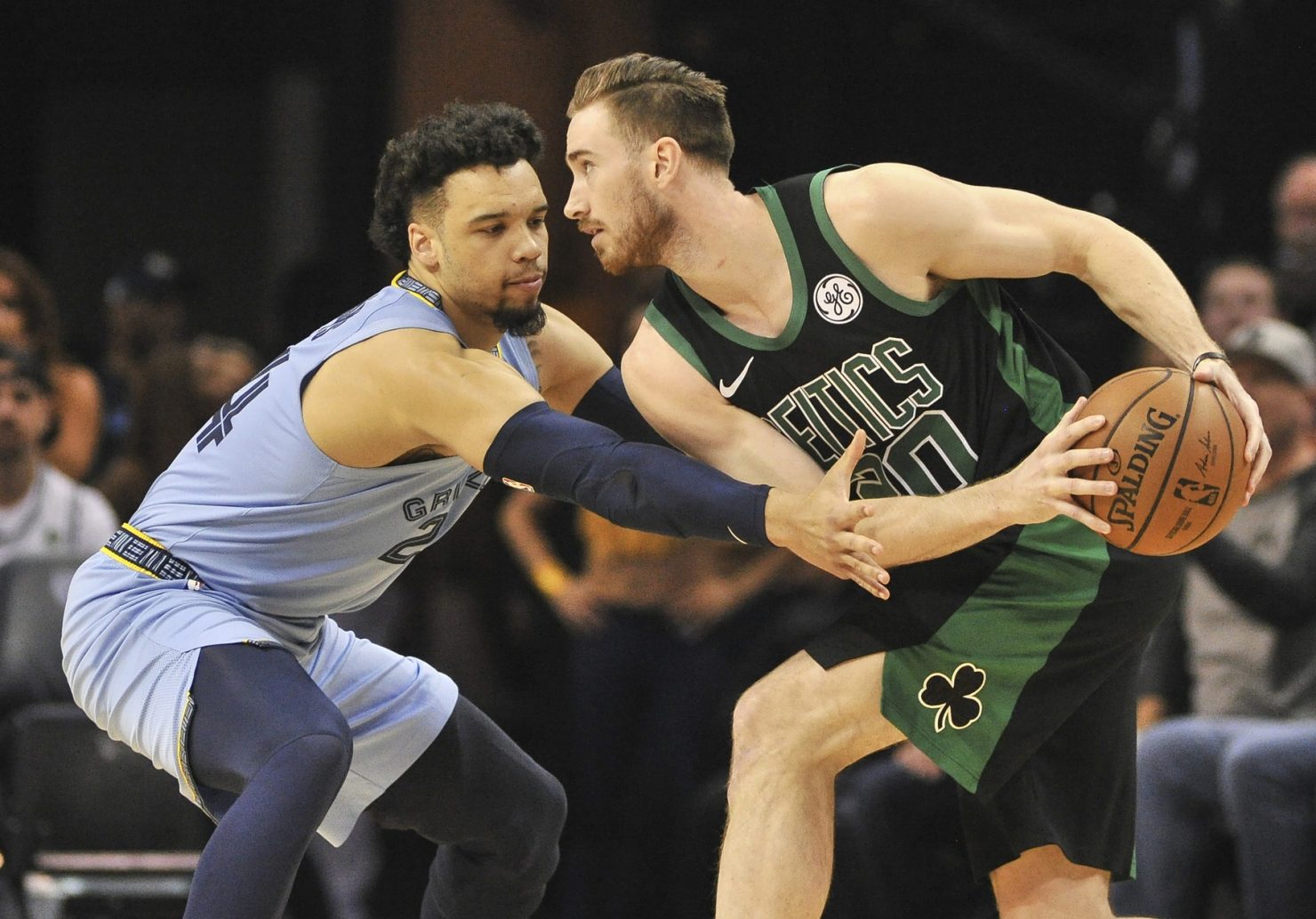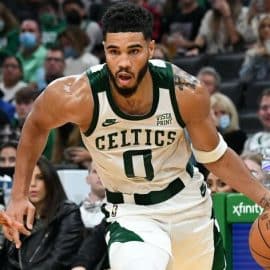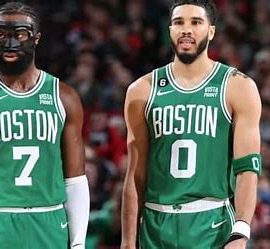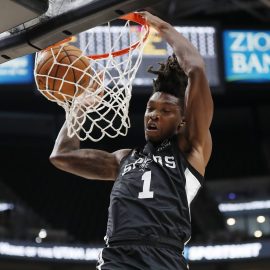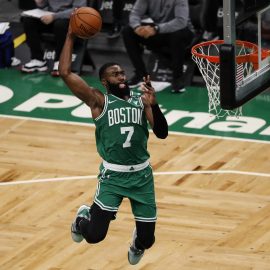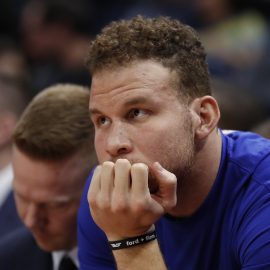All season long, Boston Celtics fans and NBA commentators alike have speculated whether Gordon Hayward’s uneven performance stems from persistent vestigial pain from his gruesome opening-night ankle injury in October 2017, which kept him from participating in a 2017-18 Celtics campaign that culminated one poor-shooting-quarter away from the NBA finals.
Our definite answer to that question came from the man himself, in a Bleacher Report piece that dropped today:
“I think most of that is probably from a lack of confidence in going to the basket and challenging bigs—especially at the beginning of the year. I think that’s the last part that’s not all the way back yet…Moving horizontally, I’m definitely starting to feel like I felt a couple years ago, but vertically I’m still not as confident as I want to be, and I think some of that is a deterrent when I go to the rim.”
So it’s a yes, which likely confirms many folks’ suspicions. It certainly was the first thing I thought early this season. This poses a somewhat difficult question: Why now, and not before?
Can’t be for lack of being asked. Hayward is neither taciturn nor a loquacious quote factory like Kyrie Irving or Marcus Morris often are (for better and worse), but speaks with media often enough that the query must’ve surfaced. He was particularly forthcoming during the rehab process itself—enough to admit part of the struggle was mental, no small feat for an All-Star-caliber player or a man raised in smalltown Indiana’s pull-yourself-up-by-the-bootstraps culture, let alone both. But during this season itself, he’s been quiet or vague about his inconsistent, oft-hesitant play.
The Celtics were careful with the former Butler star and face of the Utah Jazz early this year, resting him on some SEGABABAs and keeping him out of games preemptively. This was the right thing to do.
Might it also be wise to keep him on a quick hook if pain bothers him during a game? His minutes per game are down, but that’s because Brad Stevens is pulling him out when he’s ineffective on the court and not necessarily wondering why in the middle of a game, since approximately 90,000 other things are currently running through Stevens’s head.
Voicing the issue is Hayward’s responsibility, as neither coaches nor sideline medical staff are mind-readers. They can see looks of discomfort on athletes’ faces, or similar signs, but players have pride and aren’t necessarily vocal about physical issues they write off as minor in the moment, as exemplified by numerous Celtics: Larry Bird played through nerve damage in his back for years. Kevin McHale limps like an 80-year-old today as a result of similar behavior, and while we’ll never know for sure, it wouldn’t surprise me if Chief Parish kept his mouth shut about some injuries not in his official bio. More recently, Rajon Rondo gritted his teeth through foot injuries in 2011, and Isaiah Thomas put up historic numbers during the 2017 playoffs amid grief over of his sister’s untimely death and a hip injury that dogs him to this day. Examples of this abound throughout the NBA’s history among countless roster members of other teams, and those are just the ones we know about.
When it comes to playing hurt, there’s tough and then there’s stupid. Constantly driving to the rim through contact is vital to many stars’ scoring production, and—shocker—running at full speed through large human beings ain’t a euphoric sensation for anyone but masochists. Win-or-go-home scenarios can also require sucking it up despite serious pain. In the regular season, though, playing hurt can be an albatross around a team’s neck, almost as much so as being absent through completely unplayable injuries. I’m sure quite a few people think otherwise, and don’t devalue such opinions. But for me, any player, coach or front-office decision that hurts a team is ultimately stupid.
It’s unclear what Hayward’s choice to be quiet until now about lingering injury issues is between those two options, and likely isn’t as similar as that binary. And the Celtics’ difficulties this year extend well beyond the troubles with GH. But one can’t help but wonder if this particular problem would be a bit diminished had it been addressed directly sooner. Hopefully, it becomes a moot point by the All-Star break if, at that point, he’s 90 to 100 percent his old self. On that, we likely all agree.
Add The Sports Daily to your Google News Feed!
